LET’S TALK ABOUT RETINOL
Whew, I’ve been meaning to get to this post for a while as Retinol is an ingredient I harp on about a lot and, naturally, get a load of questions about it. I always try and base these informative posts on the questions that come up the most as, whew, replying to DM’s is a job in itself, and directing people to a link would make my life a lot easier.
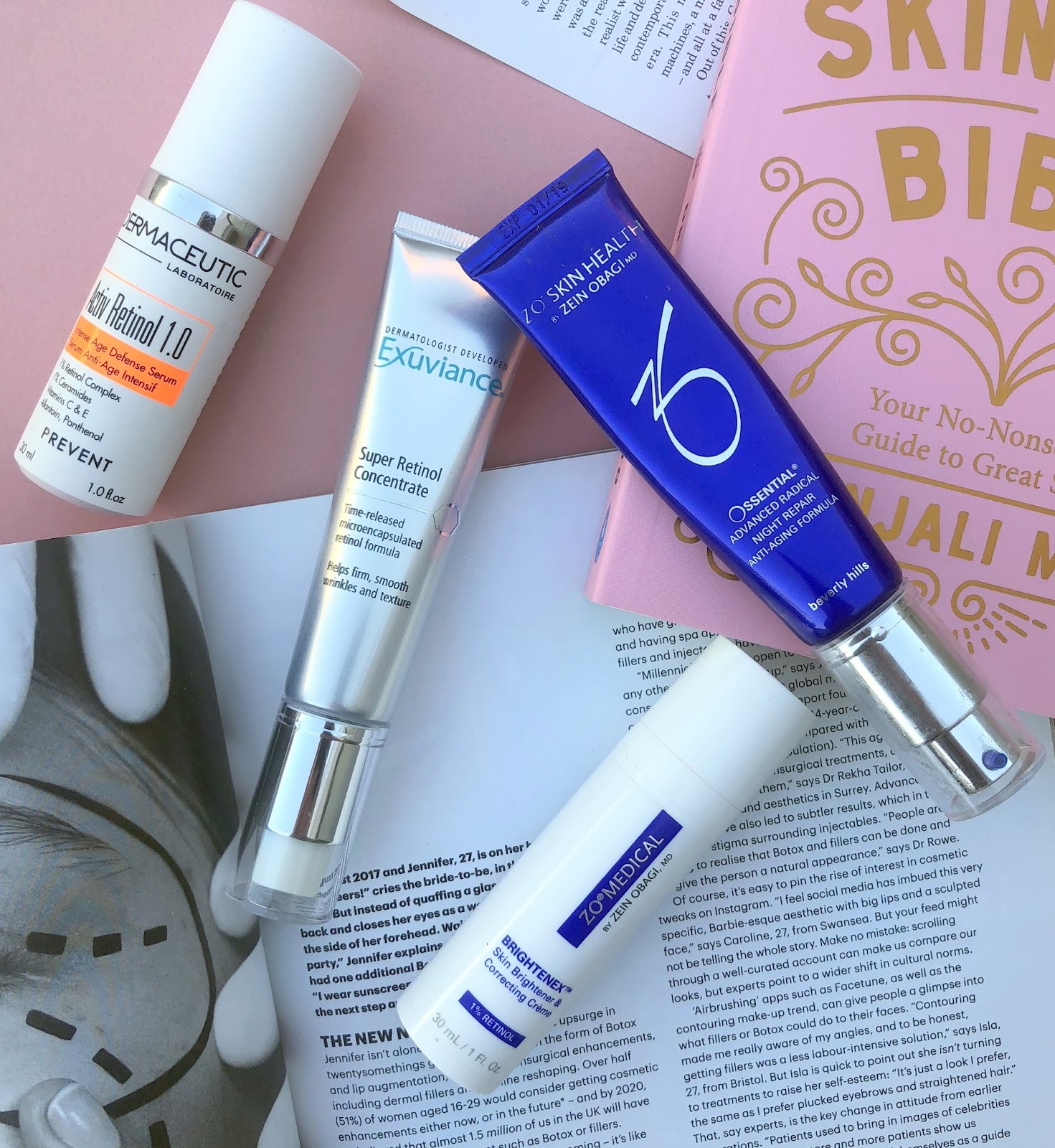
I also always aim to inform you guys, products aside, on skincare. This way you can make your own informed decisions on your routine etc and not be led astray by a beauty consultant/beautician keen to make her weekly sales target.
As with all these posts, I am really summarising a pretty in-depth subject here. There is so much to say on each of these points, but I am trying to keep the info relevant and summarised. If there is more info you want, Google is your friend and I am also here to answer. Plus websites like Dermastore give fab, easy-to-understand product info.
WHAT IS RETINOL?
Well, technically this is one of the different types of Vitamin A derivatives out there. There are retinoids, Retin-A and Retinols – which all contain the powerful Vitamin A, just in different structures and strengths.
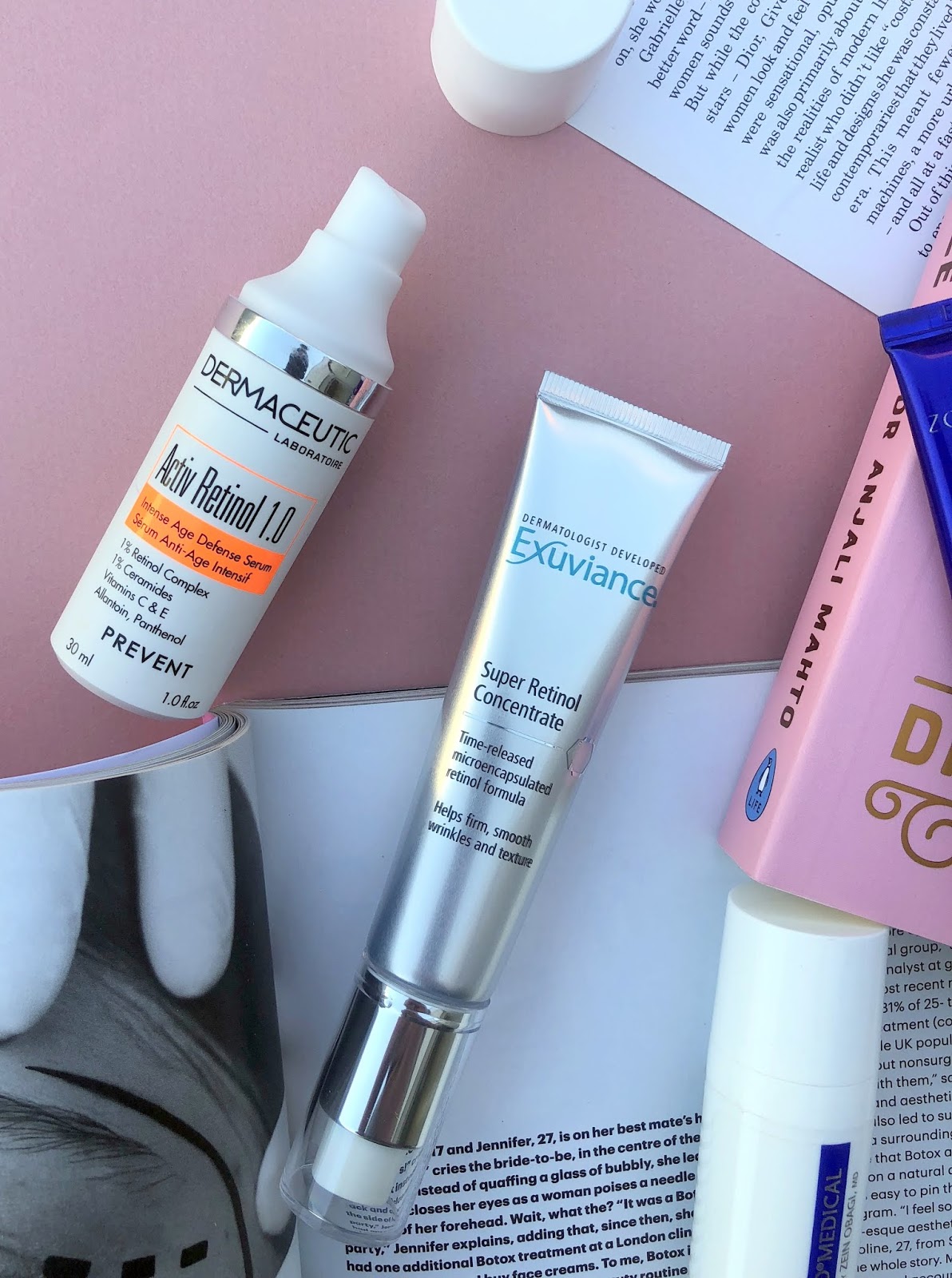
THE BENEFITS OF RETINOL
Hmmm, you are asking a Retinol convert here so my answer is going to be endless, but this ingredients main benefit is tackling ageing skin. In laymen terms, retinol is sloughing away dead skin cells which is why you get the flaking ‘retinol effect’ when you use it. Therefore it’s benefits span from ageing and help with pigmentation to overall skin texture and radiance. Scarring is also improved, as are fine lines and wrinkles. Retin-A is often prescribed for Acne patients and can get incredible results, so it also helps hugely with any breakouts. It’s a very strong ingredient (obviously strength dependant) so should be used with caution.
An over-the-counter cheap product claiming retinol will often be very low down on the ingredients list, so this is not what I would recommend.
So, where do I start?
In short, Retinol can be bought over the counter, and Retinoids are generally prescription. Therefore your Retinoids are obviously generally stronger. Retinols, which can be bought at varying strength, are still very effective and what I use on my skin. These should not be treated lightly as you need to use them with caution – you WILL see flaking, redness, dry skin etc before your skin gets used to introducing a product with this ingredient in it .
Again, I look to medical-grade skincare brands for proper retinol that will actually see change. You need to look at the percentage. For a newbie, I would say you can start at about 0.5%, however, I started as a newbie on 1% and was fine (my skin can handle it, so go on what you think your skin can handle or seek a professionals advice who can assess your skin in person).
How do I use it?
I use my retinol every third night, sometimes every second night. I cleanse my skin, apply a hydrating serum if my skin feels parched (let that sink in) and then apply the retinol. Cleanse this off the next morning and continue your normal routine. Generally retinols will only be used at night (unless specified, for eg my white ZO Skin Health one is for day-time sue). Spf should always be used (as normal), but your skin well be super sensitive to the sun so be overly-cautious here. Be sure to not bring your retinol too close to the eye area.
What can I expect to see?
This differs, depending on your skin. Essentially you will note that your skin will initially feel quite tight and dry after using this. Flaking may occur too. Your skin might appear quite red and feel quite sensitized. This can be for your first few weeks of use, but will subside and your new, healthy skin will surface – looking younger and fresher.
This is my number one anti-ageing ingredient, so if you are serious about wanting to look after your skin then a good quality retinol is the best way forward, you also need to be prepared to persevere. My skin took a good few weeks to normalise.
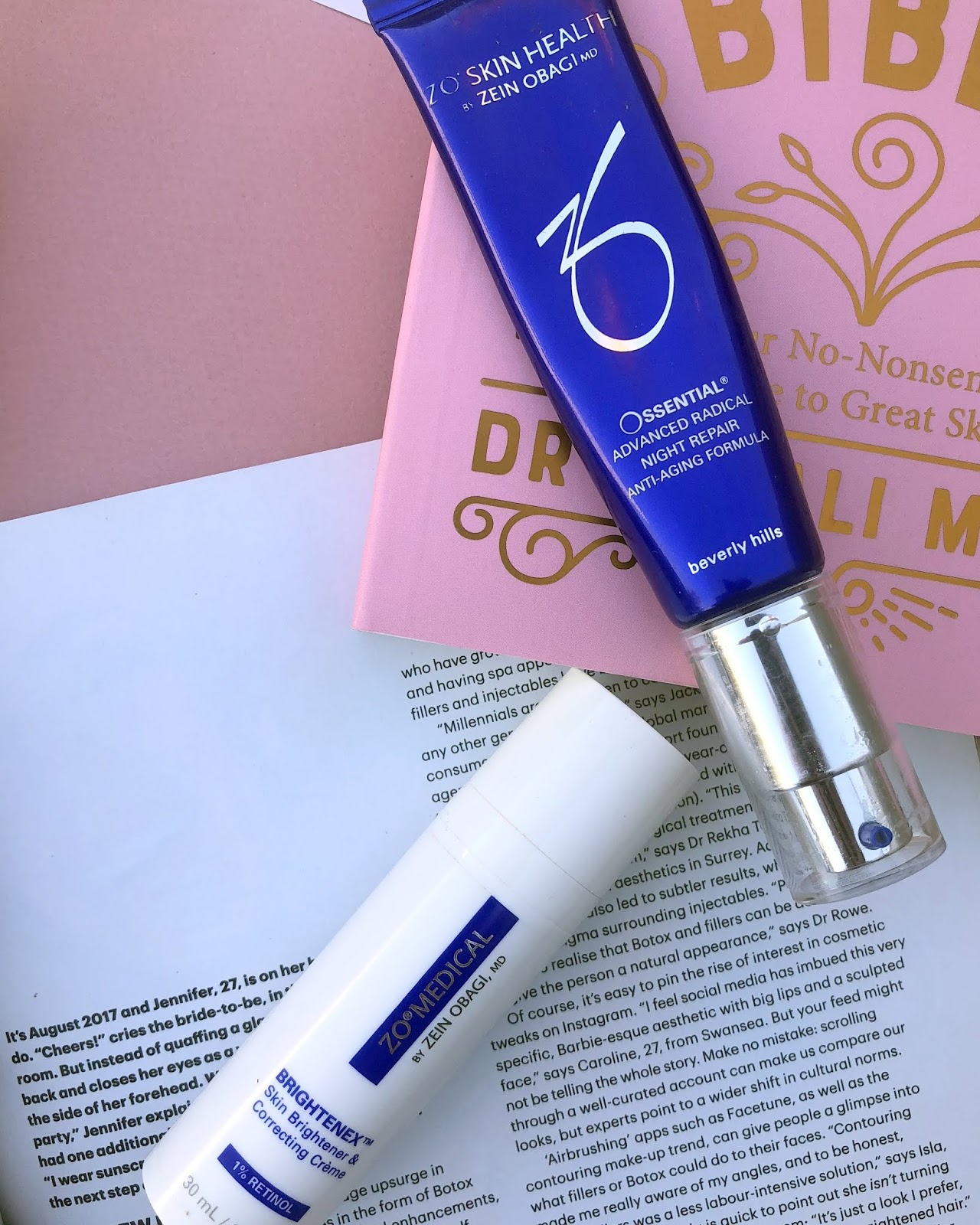
My recommendations:
As I say, medical grade skincare brands are who I look to for an ingredient like retinol. No where else. Prescription options are obviously good too, provided they have been prescribed to YOU by a professional (and you not stealing your sisters acne script!). Keep in mind that the retinols percentage on the bottle will say a certain %, however, a lower percentage is actually delivered to the skin. For example, I use the ZO Skin Health one which is 1.7% but 1% is delivered to the skin. Therefore all the 1% options below are delivered at lower than 1% when applied. It doesn’t mean this is less effective (don’t be deceived into thinking low percentages aren’t as effective, they definitely are!). In terms of sensitive skins and very reactive skins, I suggest consulting a professional if you battle with sensitivity as retinol is a very active ingredient. That being said, when used correctly it can be a great form of exfoliation for sensitive skins (and trust me, you sensitive skins need help with exfoliation).
Some of my favourites are:
ZO Skin Health Radical Night Repair – 1.7%
Dermaceutic – they have a 0.5% option and a 1% option (I’ve only tried the 1% and loved it, go milder if you are sensitive) Exuviance Super Retinol Concentrate – 1% NeoStrata Skin Active Retinol + NAG Complex Skinceuticals Retinol 1% Lamelle RA Cream – I haven’t personally tried this, but heard good things. Please note that I have not tried every Retinol on the market, so if it isn’t listed above I haven’t tried it and am not that familiar with the skincare line, so safer for me to speak to what I know. Also, if you want to go this route (retinol) I advise seeking a professionals advice who can examine your skin and recommend what will be best for you. I can only recommend what works for me.

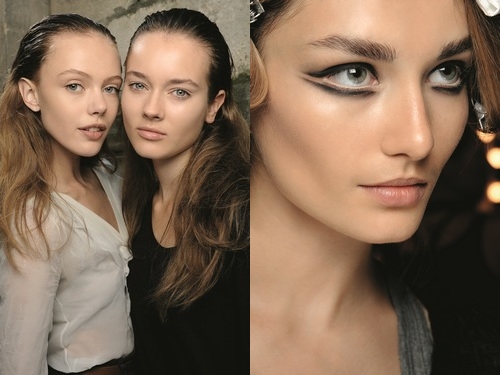

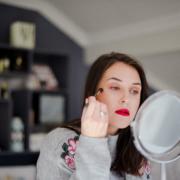

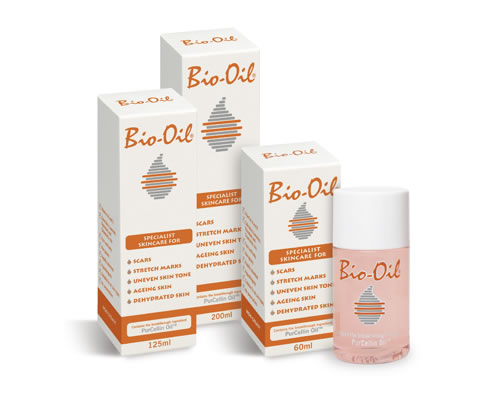
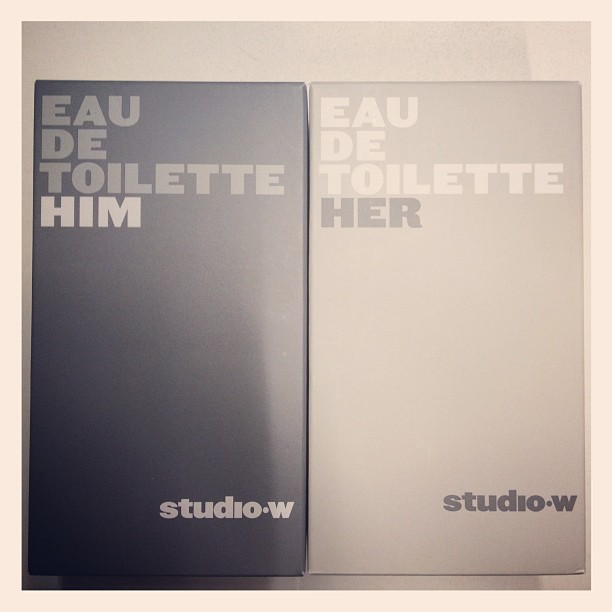



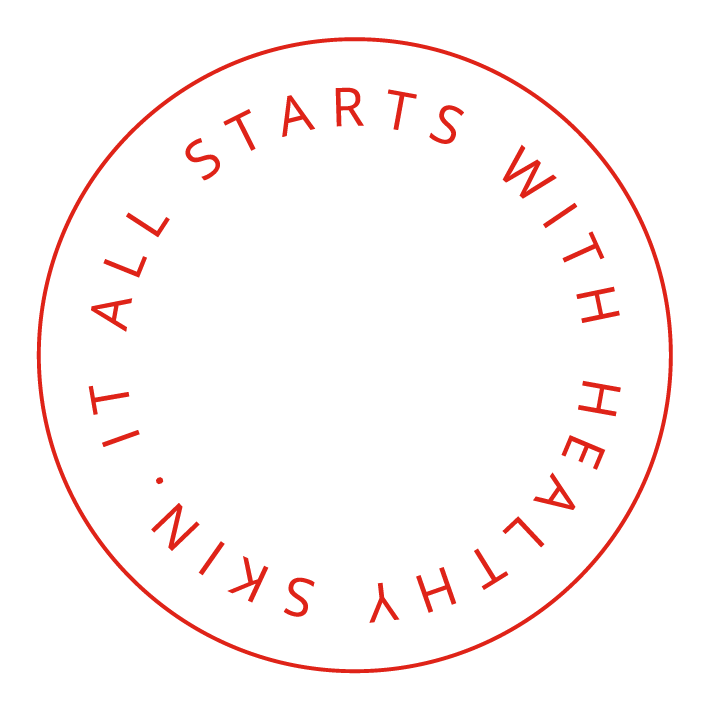

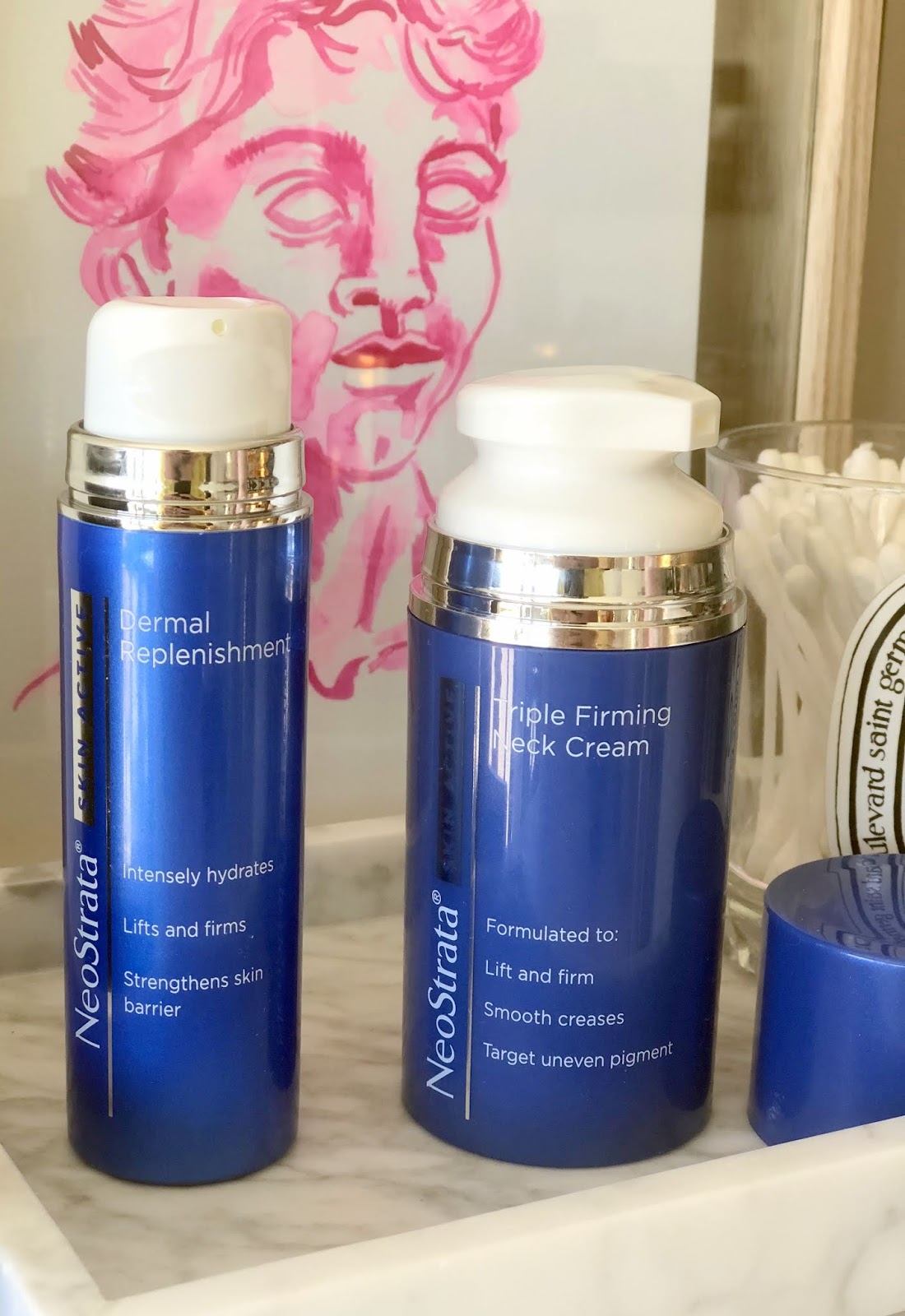
Hi there. Would you then use vitamin c on the alternate nights? Have you heard any good things about Environ's vit C and retinol?
I haven't tried either so can't comment (Environ). I use Vita C in the morning underneath my moisturiser and spf x
I'm using the Exuviance one you've mentioned above, but I've had no flaking, redness or any sort of reaction. Does that mean it's not working? I haven't seen an amazing difference in my skin and I think I'm in my 3rd month now.
Hi Tori
Thank you for providing us with such an informative post.
What is the difference between the results derived from an exfoliator (for example Exuviance’s Triple Microdermabrasion Face Polish) and that of a retinol? Is the end result the same?
Also, I have damaged my skin’s barrier before and am a little anxious to go the retinol route. How does one go about using a retinol and still protect the skin barrier?
Thank you again for educating us and helping us make informed decisions regarding the health of our skin.
Kind regards
A